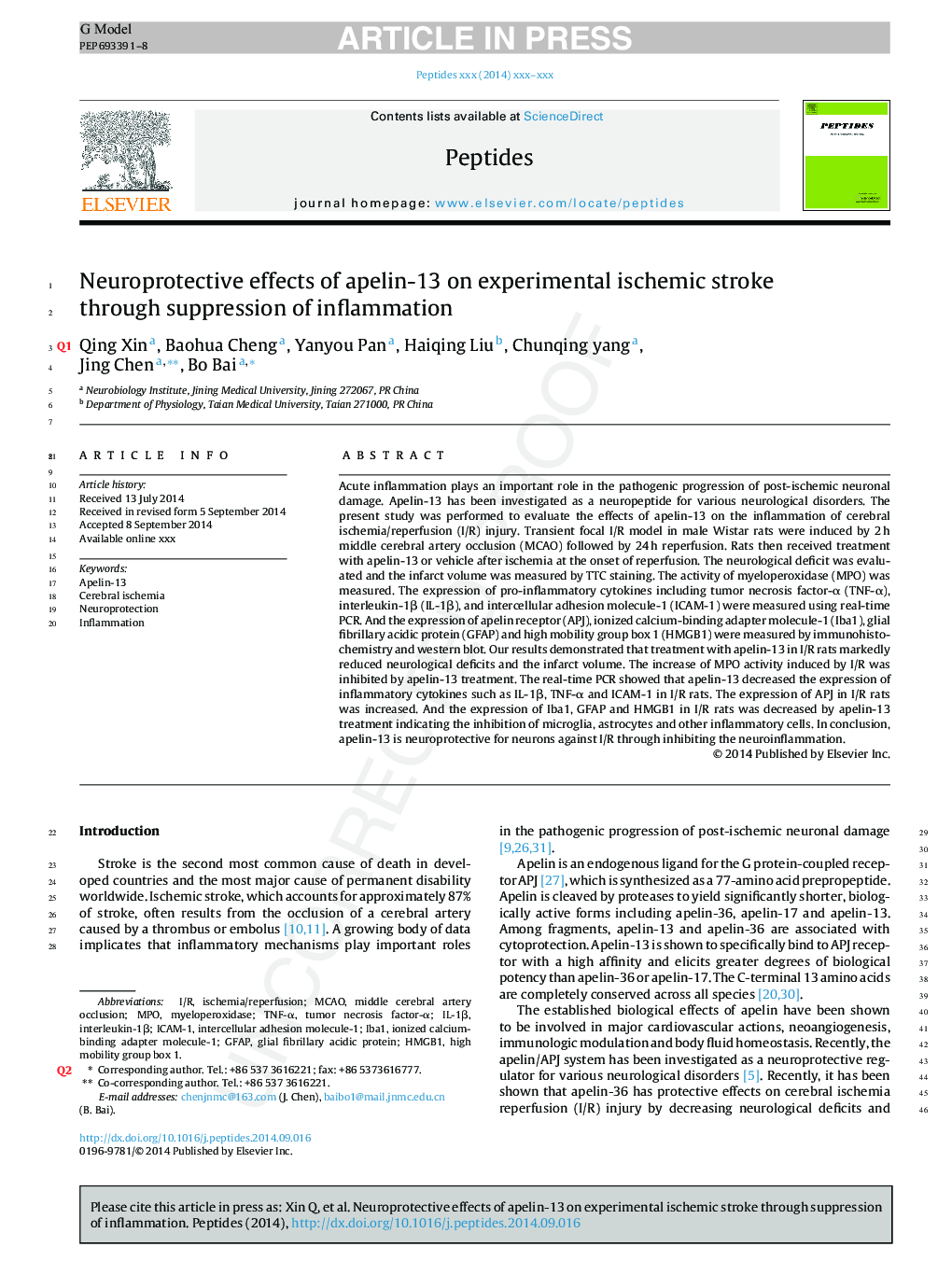| Article ID | Journal | Published Year | Pages | File Type |
|---|---|---|---|---|
| 8348170 | Peptides | 2015 | 8 Pages |
Abstract
Acute inflammation plays an important role in the pathogenic progression of post-ischemic neuronal damage. Apelin-13 has been investigated as a neuropeptide for various neurological disorders. The present study was performed to evaluate the effects of apelin-13 on the inflammation of cerebral ischemia/reperfusion (I/R) injury. Transient focal I/R model in male Wistar rats were induced by 2 h middle cerebral artery occlusion (MCAO) followed by 24 h reperfusion. Rats then received treatment with apelin-13 or vehicle after ischemia at the onset of reperfusion. The neurological deficit was evaluated and the infarct volume was measured by TTC staining. The activity of myeloperoxidase (MPO) was measured. The expression of pro-inflammatory cytokines including tumor necrosis factor-α (TNF-α), interleukin-1β (IL-1β), and intercellular adhesion molecule-1 (ICAM-1) were measured using real-time PCR. And the expression of apelin receptor (APJ), ionized calcium-binding adapter molecule-1 (Iba1), glial fibrillary acidic protein (GFAP) and high mobility group box 1 (HMGB1) were measured by immunohistochemistry and western blot. Our results demonstrated that treatment with apelin-13 in I/R rats markedly reduced neurological deficits and the infarct volume. The increase of MPO activity induced by I/R was inhibited by apelin-13 treatment. The real-time PCR showed that apelin-13 decreased the expression of inflammatory cytokines such as IL-1β, TNF-α and ICAM-1 in I/R rats. The expression of APJ in I/R rats was increased. And the expression of Iba1, GFAP and HMGB1 in I/R rats was decreased by apelin-13 treatment indicating the inhibition of microglia, astrocytes and other inflammatory cells. In conclusion, apelin-13 is neuroprotective for neurons against I/R through inhibiting the neuroinflammation.
Keywords
IBA1MCAOIL-1βHMGB1GFAPICAM-1MPOI/Rinflammationmiddle cerebral artery occlusionischemia/reperfusionCerebral ischemiaInterleukin-1βtumor necrosis factor-αApelin-13TNF-αNeuroprotectionintercellular adhesion molecule-1ionized calcium-binding adapter molecule-1myeloperoxidaseGlial fibrillary acidic proteinHigh mobility group box 1
Related Topics
Life Sciences
Biochemistry, Genetics and Molecular Biology
Biochemistry
Authors
Qing Xin, Baohua Cheng, Yanyou Pan, Haiqing Liu, Chunqing yang, Jing Chen, Bo Bai,
